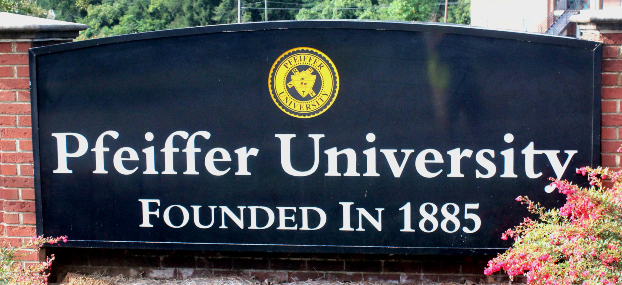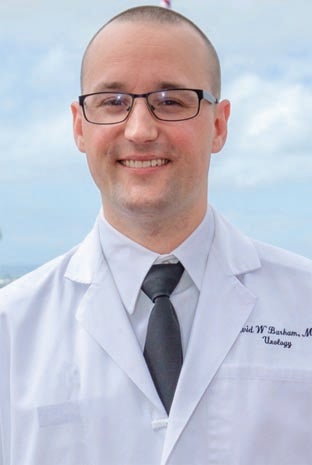Barham receives Pfeiffer Presidential Merit Award for work in medical field
Published 10:38 am Tuesday, October 6, 2020

- Misenheimer, North Carolina
|
Getting your Trinity Audio player ready...
|
Editor’s Note: The recipients of Pfeiffer University’s annual alumni awards have been announced. The following profile is on 2011 Pfeiffer graduate Dr. David W. Barham, Presidential Merit Award winner.
David Barham is a rising star in the field of urology.
After earning a Bachelor of Science in chemistry at Pfeiffer, he attended the Brody School of Medicine at East Carolina University through the U.S. Army’s Health Professions Scholarship Program, which offers prospective military physicians and other health professionals a paid medical education in exchange for service as a commissioned medical department officer.

Dr. David Barham
After Barham graduated Brody in 2016, he was commissioned as a captain and began a residency in urology at Tripler Army Medical Center in Honolulu. He’s serving as Tripler’s Chief Urology Resident until his graduation next summer.
“I enjoy the people and personalities within the specialty of urology and had great mentors that spurred my interest,” Barham said. “Urology is a subspecialty that allows me to develop an expertise but still develop long-term relationships with patients.”
Barham’s work in urology is multifaceted. He has participated in quality-improvement projects designed to provide better and safer care for patients at Tripler, and he has worked to reduce the over-prescription of opioids following urologic surgery. His research on over-prescription, which was published in Journal of Urology, found that routine prescribing of opioids for pain control after vasectomy wasn’t necessary and was associated with persistent use in 7.8 percent of patients at 3-6 months.
“Therefore, the goal is to use opioids only when necessary (i.e. when other classes of medications and conservative measures fail to adequately control pain) and to use the lowest dose for the shortest duration in hopes of decreasing risk of addiction,” Barham said. “A safer alternative, which is the one that we have adopted, is to use Tylenol, ibuprofen and ice as first-line options. If patients have uncontrolled pain despite appropriate conservative therapy, then opioids can be used. Typically, conservative options are unsuccessful in only 10 percent of patients after vasectomy — which would result in a much lower rate of opioid use as pain control than the routine prescription of opioids to 100% of this group of patients.”
Barham lives in Kailua, Hawaii with his wife, Dr. Jessica Sundman Barham, PT, a Pfeiffer alumna, Class of 2010. The couple have a son, John, 2. The Barhams’ time in Hawaii is drawing to a close.
Next summer, Barham will begin a two-year fellowship in urologic reconstructive surgery at the University of California, Irvine.
The urinary tract and male reproductive system are often damaged from trauma, radiation for cancer therapy, iatrogenic injuries, infection and congenital anomalies. In patients dealing with these conditions, urologic reconstructive surgery can restore normal or near-normal urinary and sexual function.
“My goal in pursuing fellowship training is to develop the skills to treat complex reconstructive surgical problems which many of our nation’s military face often as a result of injuries sustained in defense of our nation,” Barham said.
Ken Keuffel, who authored this article, has served as Pfeiffer’s assistant director of Communications since December 2019. He welcomes story ideas from Pfeiffer’s faculty, staff, students, alumni, and friends. The form for submitting story ideas is at www.pfeiffer.edu/newsform.




